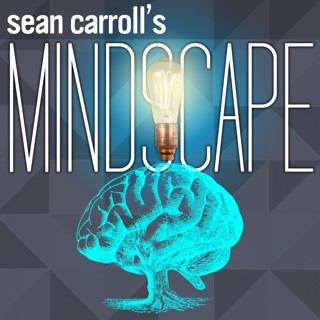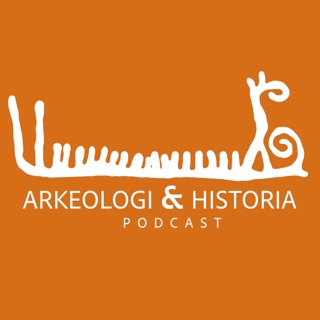
97 | John Danaher on Our Coming Automated Utopia
Humans build machines, in part, to relieve themselves from the burden of work on difficult, repetitive tasks. And yet, despite the fact that machines are everywhere, most of us are still working pretty hard. But maybe that’s about to change. Futurists like John Danaher believe that society is finally on the brink of making a transition to a world in which work would be optional, rather than mandatory — and he thinks that’s a very good thing. It will take some adjusting, personally as well as economically, but he envisions a future in which human creativity and artistic impulse can flourish in a world free of the demands of working for a living. We talk about what that would entail, whether it’s realistic, and what comes next.Support Mindscape on Patreon.John Danaher received an LLM degree from Trinity College Dublin and a Ph.D. from University College, Cork. He is currently Senior Lecturer in the School of Law at the National University of Ireland, Galway. His research is situated at the overlap of legal studies and philosophy, and frequently involves questions of technology, automation, and the future. He is the coeditor of Robot Sex: Social and Ethical Implications, and author of the recent book Automation and Utopia: Human Flourishing in a World Without Work. He writes frequently for publications such as The Atlantic, The Guardian, and The Irish Times, and is the host of his own podcast, Philosophical Disquisitions.Web site and blogNUI Galway web pageGoogle Scholar publicationsAmazon.com author pageTalk on The Algorithmic Self in LovePhilosophical Disquisitions podcastTwitterSee Privacy Policy at https://art19.com/privacy and California Privacy Notice at https://art19.com/privacy#do-not-sell-my-info.
18 Maj 20201h 22min

96 | Lina Necib on What and Where the Dark Matter Is
The past few centuries of scientific progress have displaced humanity from the center of it all: the Earth is not at the middle of the Solar System, the Sun is but one star in a large galaxy, there are trillions of galaxies, and so on. Now we know that we’re not even made of the same stuff as most of the universe; for every amount of ordinary atoms and other known particles, there is five times as much dark matter, some kind of stuff we haven’t identified in laboratory experiments. But we do know a great deal about the behavior of dark matter. I talk with Lina Necib about why we think there’s dark matter, what it might be, and how it’s distributed in the galaxy. The latter question has seen enormous recent progress, especially from high-precision measurements of the distribution of stars in the Milky Way.Support Mindscape on Patreon.Lina Necib received her Ph.D. in physics from the Massachusetts Institute of Technology. She is currently a Sherman Fairchild Postdoctoral Scholar in Theoretical Physics at Caltech, and will be an Assistant Professor of Physics at MIT starting in the fall. Her research spans issues in particle physics and astrophysics, especially concerning the nature and distribution of dark matter, as well as techniques for detecting it and constraining its properties.Web pageInspire publicationsGoogle Scholar publicationsTalk on Dark Matter in the Age of GaiaGaia home pageSee Privacy Policy at https://art19.com/privacy and California Privacy Notice at https://art19.com/privacy#do-not-sell-my-info.
11 Maj 20201h 21min

95 | Liam Kofi Bright on Knowledge, Truth, and Science
Everybody talks about the truth, but nobody does anything about it. And to be honest, how we talk about truth — what it is, and how to get there — can be a little sloppy at times. Philosophy to the rescue! I had a very ambitious conversation with Liam Kofi Bright, starting with what we mean by “truth” (correspondence, coherence, pragmatist, and deflationary approaches), and then getting into the nitty-gritty of how we actually discover it. There’s a lot to think about once we take a hard look at how science gets done, how discoveries are communicated, and what different kinds of participants can bring to the table.Support Mindscape on Patreon.Liam Kofi Bright received his Ph.D. in Logic, Computation and Methodology from Carnegie Mellon University. He is currently on the faculty of the London School of Economics in the Department of Philosophy, Logic, and the Scientific Method. He has worked on questions concerning peer review and fraud in scientific communities, intersectionality, logical empiricism, and Africana philosophy. He is well-known on Twitter as the Last Positivist.Web sitePhilPeople profileThe Sooty Empiric BlogPaper on “Is Peer Review a Good Idea?”Talk on Why Do Scientists Lie?TwitterSee Privacy Policy at https://art19.com/privacy and California Privacy Notice at https://art19.com/privacy#do-not-sell-my-info.
4 Maj 20201h 35min

94 | Stuart Russell on Making Artificial Intelligence Compatible with Humans
Artificial intelligence has made great strides of late, in areas as diverse as playing Go and recognizing pictures of dogs. We still seem to be a ways away from AI that is “intelligent” in the human sense, but it might not be too long before we have to start thinking seriously about the “motivations” and “purposes” of artificial agents. Stuart Russell is a longtime expert in AI, and he takes extremely seriously the worry that these motivations and purposes may be dramatically at odds with our own. In his book Human Compatible, Russell suggests that the secret is to give up on building our own goals into computers, and rather programming them to figure out our goals by actually observing how humans behave.Support Mindscape on Patreon.Stuart Russell received his Ph.D. in computer science from Stanford University. He is currently a Professor of Computer Science and the Smith-Zadeh Professor in Engineering at the University of California, Berkeley, as well as an Honorary Fellow of Wadham College, Oxford. He is a co-founder of the Center for Human-Compatible Artificial Intelligence at UC Berkeley. He is the author of several books, including (with Peter Norvig) the classic text Artificial Intelligence: A Modern Approach. Among his numerous awards are the IJCAI Computers and Thought Award, the Blaise Pascal Chair in Paris, and the World Technology Award. His new book is Human Compatible: Artificial Intelligence and the Problem of Control.Web pageGoogle Scholar publicationsWikipediaTalk on Provably Beneficial Artificial IntelligenceAmazon author pageSee Privacy Policy at https://art19.com/privacy and California Privacy Notice at https://art19.com/privacy#do-not-sell-my-info.
27 Apr 20201h 27min

93 | Rae Wynn-Grant on Bears, Humans, and Other Predators
Human beings have a strange fascination with dangerous, predatory animals — bears, lions, wolves, sharks, and more. The top of the food chain is an interesting and precarious place to live; while you might be the boss of your local environment, you also depend on the functioning of an entire ecology. Rae Wynn-Grant is a carnivore ecologist who studies how large predators migrate, feed, reproduce — and especially how they interact with humans. We talk about the diverse social structures of different species of carnivores, how they find mates, and how they diversify their diet. And of course we discuss how humans and other locally-dominant species can live together peacefully.Rae Wynn-Grant received her Ph.D. in Ecology and Evolution from Columbia University. She is currently a Fellow with National Geographic Society working on carnivore conservation in partnership with the American Prairie Reserve. She maintains a Visiting Scientist position at the American Museum of Natural History, and adjunct faculty positions at Columbia University and Johns Hopkins University. She appears in National Geographic’s Born Wild: The Next Generation, premiering on April 22.Web siteNational Geographic web pageAMNH web pageJohns Hopkins web pageTalk on Humans and Conflicts with BearsTwitterSee Privacy Policy at https://art19.com/privacy and California Privacy Notice at https://art19.com/privacy#do-not-sell-my-info.
20 Apr 20201h 2min

92 | Kevin Hand on Life Elsewhere in the Solar System
It’s hard doing science when you only have one data point, especially when that data point is subject to an enormous selection bias. That’s the situation faced by people studying the nature and prevalence of life in the universe. The only biosphere we know about is our own, and our knowing anything at all is predicated on its existence, so it’s unclear how much it can teach us about the bigger picture. That’s why it’s so important to search for life elsewhere. Today’s guest is Kevin Hand, a planetary scientist and astrobiologist who knows as much as anyone about the prospects for finding life right in our planetary backyard, on moons and planets in the Solar System. We talk about how life comes to be, and reasons why it might be lurking on Europa, Titan, or elsewhere.Support Mindscape on Patreon.Kevin Hand received his Ph.D. in Geological and Environmental Sciences from Stanford University. He is currently Deputy Chief Scientist for Solar System Exploration at NASA’s Jet Propulsion Laboratory. He has collaborated with director James Cameron, and is a frequent consultant on films, including acting as a science advisor to the movie Europa Report. His a cofounder of Cosmos Education, a non-profit organization devoted to science education in developing countries. His new book is Alien Oceans: The Search for Life in the Depths of Space.JPL web pageGoogle Scholar publicationsTalk on Ocean Worlds of the Outer Solar SystemWikipediaTwitterSee Privacy Policy at https://art19.com/privacy and California Privacy Notice at https://art19.com/privacy#do-not-sell-my-info.
13 Apr 20201h 56min

91 | Scott Barry Kaufman on the Psychology of Transcendence
If one of the ambitious goals of philosophy is to determine the meaning of life, one of the ambitious goals of psychology is to tell us how to achieve it. An influential work in this direction was Abraham Maslow’s hierarchy of needs — a list of human needs, often displayed suggestively in the form of a pyramid, ranging from the most basic (food and shelter) to the most refined. At the top lurks “self-actualization," the ultimate goal of achieving one’s creative capacities. Psychologist Scott Barry Kaufman has elaborated on this model, both by exploring less-well-known writings of Maslow’s, and also by incorporating more recent empirical psychological studies. He suggests the more dynamical metaphor of a sailboat, where the hull represents basic security needs and the sail more creative and dynamical capabilities. It’s an interesting take on the importance of appreciating that the nature of our lives is one of constant flux.Support Mindscape on Patreon.Scott Barry Kaufman received his Ph.D. in cognitive psychology from Yale University. He has taught at Columbia University, NYU, the University of Pennsylvania, and elsewhere. He is the host of The Psychology Podcast. He was named by Business Insider as one of the “50 groundbreaking scientists who are changing the way we see the world.” He is the author of numerous books; his most recent, Transcend: The New Science of Self-Actualization, is published April 7.Web siteThe Psychology PodcastGoogle Scholar publicationsAmazon.com author pageDiscussion on “Defining Intelligence”WikipediaTwitterSee Privacy Policy at https://art19.com/privacy and California Privacy Notice at https://art19.com/privacy#do-not-sell-my-info.
6 Apr 20201h 19min

90 | David Kaiser on Science, Money, and Power
Science costs money. And for a brief, glorious period between the start of the Manhattan Project in 1939 and the cancellation of the Superconducting Super Collider in 1993, physics was awash in it, largely sustained by the Cold War. Things are now different, as physics — and science more broadly — has entered a funding crunch. David Kaiser, who is both a working physicist and an historian of science, talks with me about the fraught relationship between scientists and their funding sources throughout history, from Galileo and his patrons to the current rise of private foundations. It’s an interesting listen for anyone who wonders about the messy reality of how science gets done.Support Mindscape on Patreon.David Kaiser received a Ph.D. in physics, and a separate Ph.D. in history of science, from Harvard University. He is currently Germeshausen Professor of the History of Science in MIT’s Program in Science, Technology, and Society, Professor of Physics in MIT’s Department of Physics, and also Associate Dean for Social and Ethical Responsibilities of Computing (SERC) in MIT’s Schwarzman College of Computing. He has been awarded the Davis Prize and Pfizer Prize from the History of Science Society, was named a Mac Vicar Faculty Fellow for undergraduate teaching at MIT, and received the Perkins Award for excellence in mentoring graduate students. His book Quantum Legacies: Dispatches from an Uncertain World is available April 3.Web pageGoogle Scholar publicationsAmazon author pageWikipediaSee Privacy Policy at https://art19.com/privacy and California Privacy Notice at https://art19.com/privacy#do-not-sell-my-info.
30 Mars 20201h 34min





















